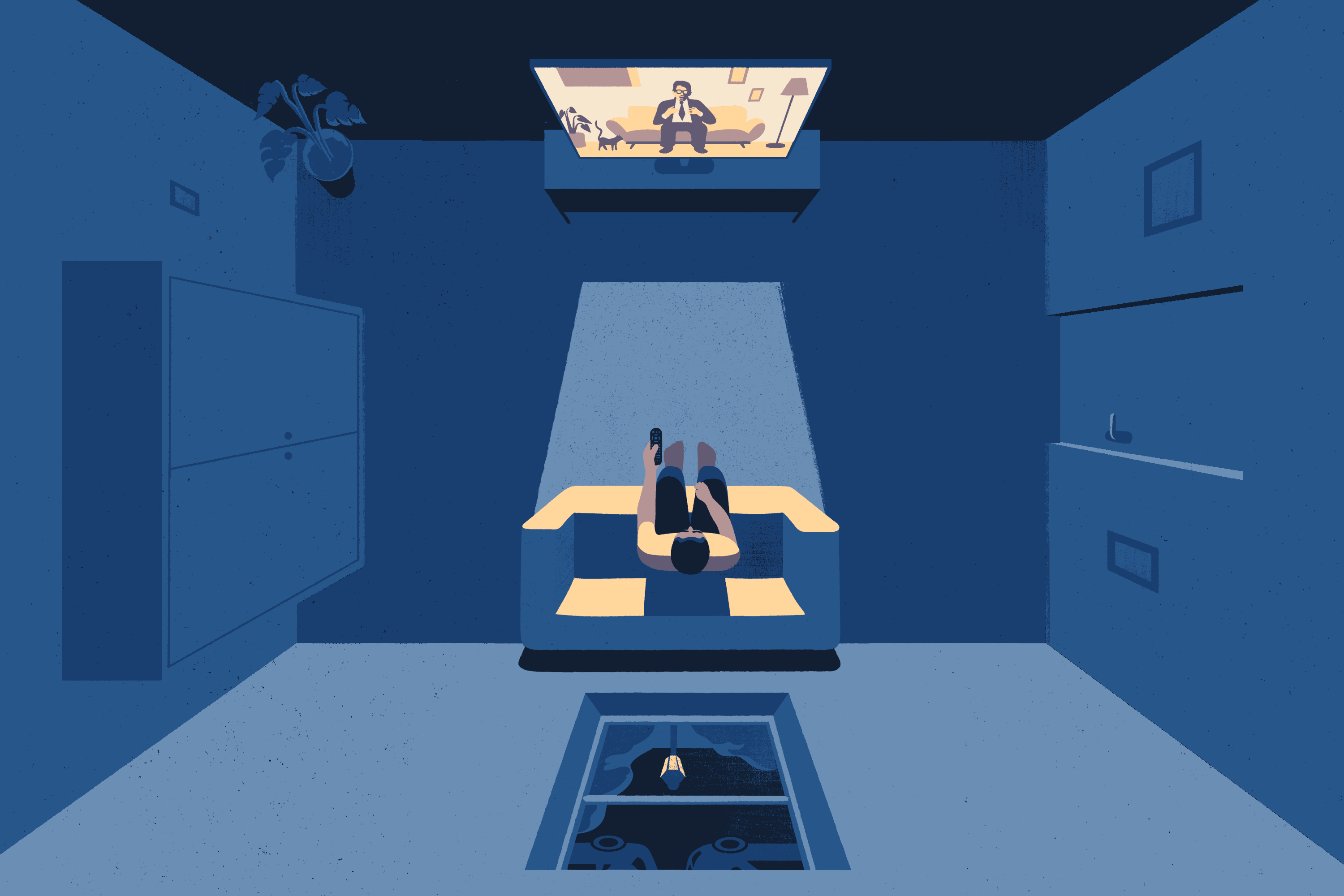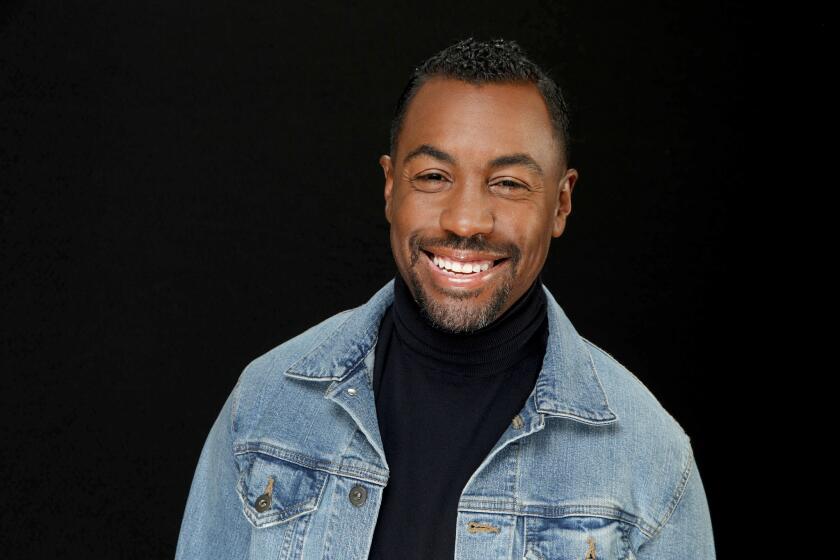TV is the medium of our coronavirus plague year. Here are 6 reasons why

- Share via
Television is likely to be remembered as the medium of our own plague year — an art form that kept its lights on as others’ flickered out.
TV, after all, is a mode of communication expressly designed to get us to stay home, so glued to our stories we forget to venture outside. And though it has traditionally been skewered as the “idiot box” or “boob tube” for these qualities, such slang terms, already hopelessly retrograde, now read as unjust: Who among us hasn’t turned to television in recent weeks, whether to stay apprised of the crisis or for a moment escape it?
As with the man standing before a shop window of stacked screens in a disaster movie, or the broadcaster signing off one last time before the asteroid hits, TV is the medium even the movies have imagined continuing in apocalyptic circumstances, the one most adaptable to the needs of “these strange times.”
And so it has come to pass. From deep binges, socially distant newscasts and President Trump’s evolving press conferences to cast reunions, at-home concerts and even the socially distant Very Special Episode, TV has been the fastest medium to adapt to our new reality. Writers for late-night talk shows are workshopping jokes remotely. Reality TV is pivoting to special quarantine editions. Scripted dramas are integrating the pandemic into their plotlines.
Though plenty of productions are shuttered to prevent the spread of the coronavirus, TV never quite closed enough to “reopen.” Instead, as always, it evolved. This is the story of TV’s great adjustment — and what TV will look like next. —Matt Brennan





